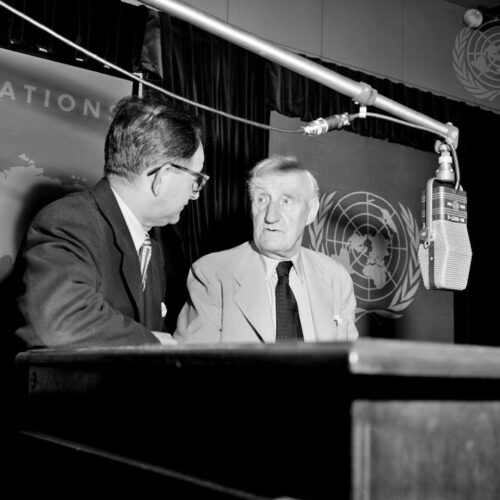

The big problem of today is how shall we adjust these tremendous new forces so that they can be harnessed to serve mankind, so that they can be directed to constructive ends. The only way to do that is to have as many people as possible thinking for themselves.
John Boyd Orr, toast to the Rationalist Press Association, 11 June 1953
John Boyd Orr was a Scottish biologist, nutritionist, doctor, and peace activist, who was the first Director-General of the UN Food and Agriculture Organization (FAO). A committed humanist, Orr’s principles underpinned his efforts for greater equity and peace around the world. He served as President of the second ever congress of Humanists International, and contributed to the 1968 volume The Humanist Outlook, in which he called on ‘developed’ countries to use science with intelligence and compassion, and for international collaboration to bring an end to ‘the intolerable evils of war and poverty’.
The hope is that wisdom may prevail and the great powers of science be applied in co-operation by all nations to create a wonderful new era free from the intolerable evils of war, poverty and disease… Such is the world which the present statesmen could, if they were wise, hand on to our children.
John Boyd Orr, As I Recall (1966)
John Boyd Orr was born on 23 September 1880 in Kilmaurs, Ayrshire, Scotland. He studied medicine at the University of Glasgow, and later pursued research in biochemistry and physiology. He went on to became one of the UK’s leading experts on nutrition, noting the effects of poverty on malnutrition, and proposing the idea of a ‘world food plan’ during the Second World War. In 1945, he was appointed the first Director-General of the Food and Agriculture Organization (FAO) of the United Nations, a position he held until 1948. In this role, he worked to address global food shortages and improve agricultural practices worldwide, including by establishing an International Emergency Food Council, with more than 30 member nations, to address the post-war food crisis.
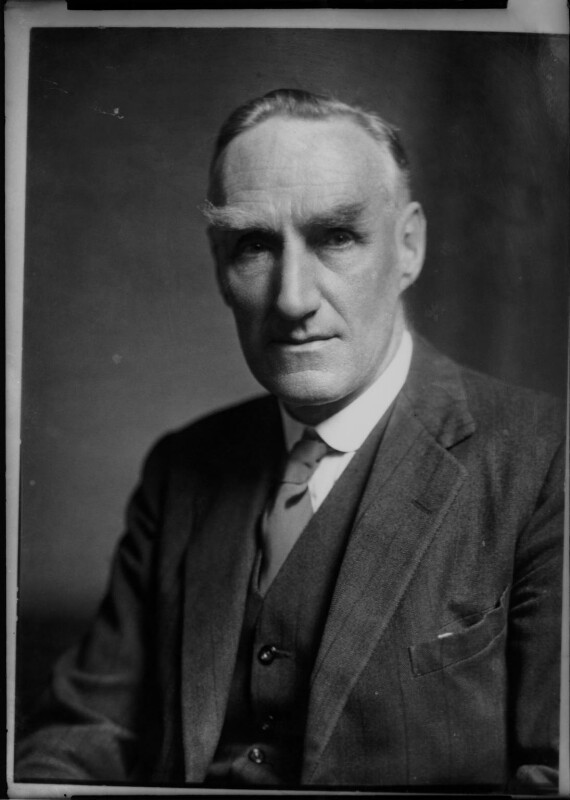
Orr’s humanist values were evident in his commitment to social reform and his fundamental belief in the importance of addressing poverty and malnutrition, which in turn would form the basis of peace. He advocated for international cooperation to ensure food security and eliminate hunger globally. His efforts earned him the Nobel Peace Prize in 1949 ‘for his lifelong effort to conquer hunger and want, thereby helping to remove a major cause of military conflict and war’. In his acceptance speech, Orr stated that his embarrassment at being presented with such an honour was ‘somewhat relieved by the thought that the award is not so much to me personally as to the movements with which I have been connected’. He donated his prize money to some of these, including the National Peace Council, and the World Movement for Federal Government.
Orr’s upbringing was a religious one, his father having been a devout member of the Free Church of Scotland. This partly prompted his pursuit of science, and he later recalled how in the rural Scotland of his childhood ‘almost everybody attended church regularly, and most believed in the authenticity of the Scriptures and thought of the Christian religion as the only true religion which would ultimately be accepted by all mankind.’ He wrote in his autobiography, As I Recall: ‘Having been brought up in the fundamentals of religion my mind was groping for a wider outlook’. Having left home, Orr ‘discarded the old beliefs… and never attended church’.
As well as his personal philosophy, As I Recall builds a vivid picture of John Boyd Orr the man:
In a religious household ‘promiscuous dancing’ was considered an evil. I never heard dance music until I was twenty-seven years of age, played by a farmer with a fiddle at a dance in a barn with a concrete floor. I have never missed a dance since right up to 1965 when my wife and I led the Grand March at a family and farm gathering.
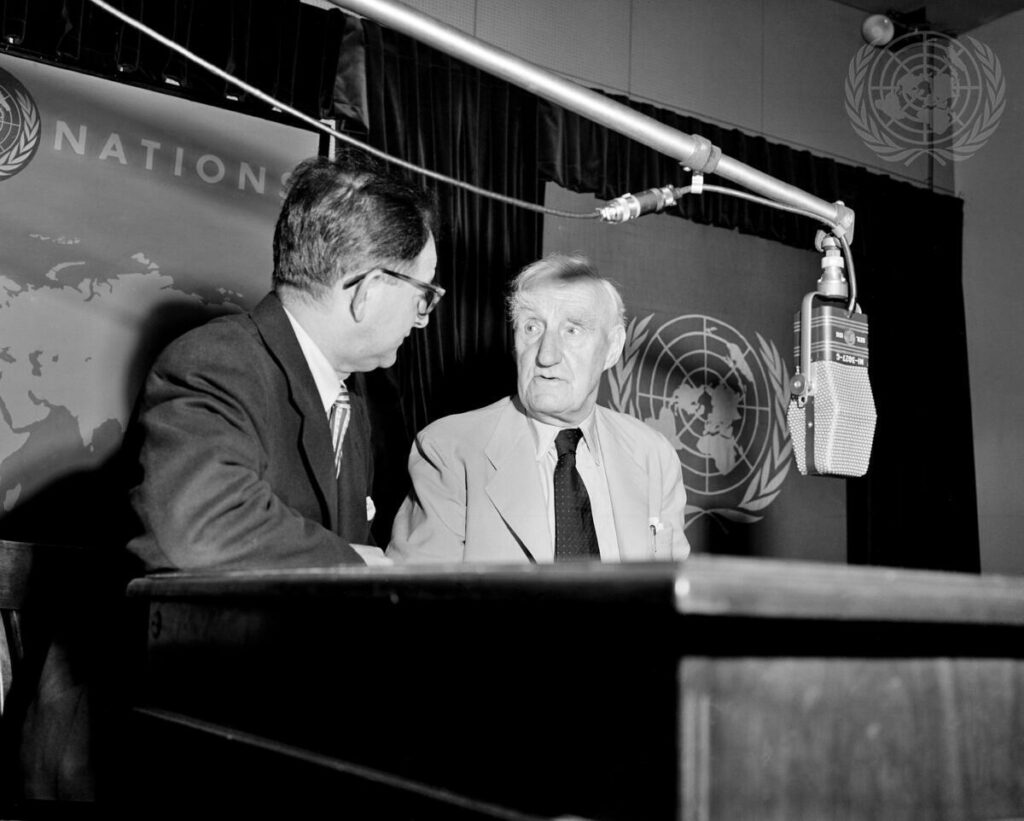
In addition to his scientific and humanitarian contributions, Orr was actively involved in politics. He advised on national food policy during the Second World War, and served as a Member of Parliament for the Scottish universities 1945–6. President of the British National Peace Council, he was also President of the Second Congress of the International Humanist and Ethical Union (now Humanists International) in 1957. He spoke and wrote many times for humanist and rationalist causes, believing freedom of thought and compassionate reason to be the basis of progress. In 1958, he wrote:
Rationalists have two tasks, first to continue their efforts to free mens’ minds from obsolete beliefs, and second to make a positive advance by applying reason to the solution of the problems of this nuclear age.
John Boyd Orr in The American Rationalist, May 1958
John Boyd Orr published his autobiography, As I Recall, in 1966. In it, as fellow Scotsman and humanist Ritchie Calder wrote in his introduction, Orr emerged as ‘the embodiment of the social-purpose of science,’ and ‘as a research scientist who made the whole world his laboratory’. He died at his home in Scotland on 25 June 1971, aged 90.
Let there be less talk of war, which inspires fear and panic, and more talk of the great new age struggling to be born. Let all of us work for it.
John Boyd Orr, Nobel Lecture, 12 December 1949
Throughout his life, John Boyd Orr’s humanism shone through not only in his scientific endeavours but also in his advocacy for social welfare, education, and international collaboration. His work laid the foundation for modern approaches to addressing global hunger and malnutrition, and his legacy endures through ongoing efforts to promote sustainable agriculture and ensure access to nutritious food for all. Orr’s contributions reflect a deep sense of responsibility and compassion for the wellbeing of humanity, and an enduring concern for how science could best be harnessed in service to humanity.
As I Recall by John Boyd Orr (1966)
A vision to feed the world | University of Aberdeen
The Boyd Orr Centre for Population and Ecosystem Health | University of Glasgow
John Boyd Orr, Baron Boyd Orr of Brechin Mearns, 1880-1971 | The Royal Society
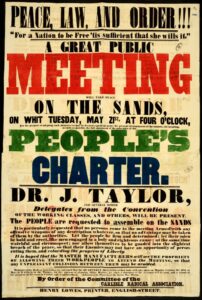
A mass working class movement for universal male suffrage Read more Chartist Ancestors and Women Chartists Chartism by David Avery […]
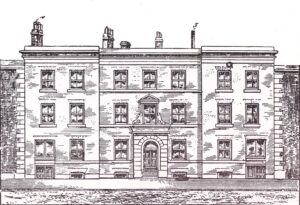
Why are these minds left without the means of obtaining that knowledge which they so ardently desire and why are […]
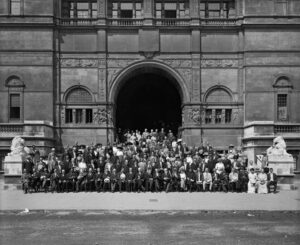
To those who regard the furtherance of International Good Will and Peace as the highest of all human interests, the […]
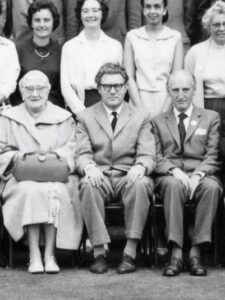
Humanism is… a tradition of thought and feeling combined with social action which stems from classical times and which has […]